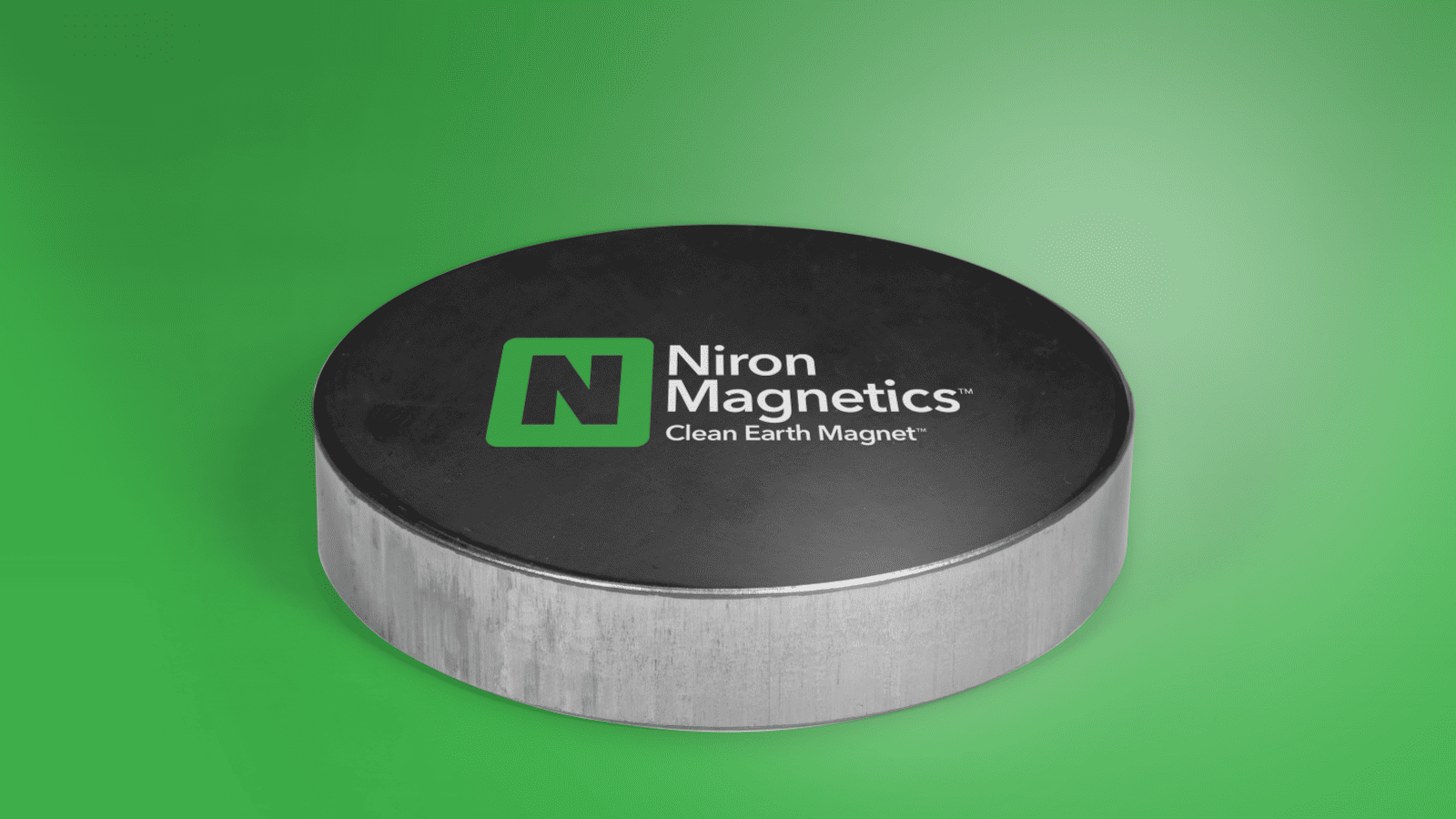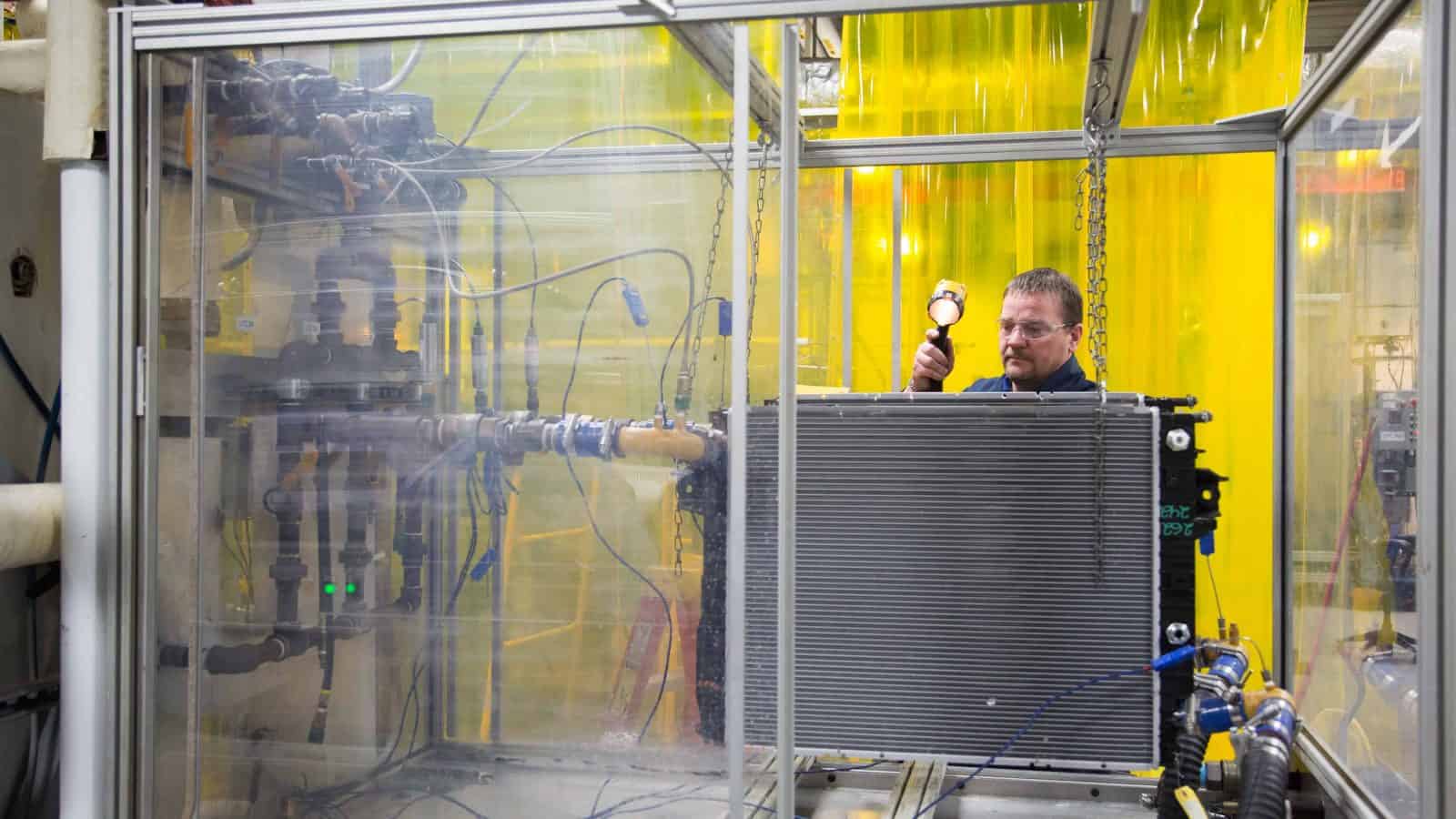How a Manufacturer Is Solving the Magnet Shortage

They say all you need is love, but in fact, you need a lot of magnets, too. Computers, appliances, electric generators and cars are powered by permanent magnet motors. Yet, most of the permanent magnets that make our modern life possible rely on rare earth materials, which are expensive, unsustainable and typically mined and processed in China.
To fix this bottleneck, Minneapolis-based Niron Magnetics is producing a new kind of magnet that uses two abundant raw materials: iron and nitrogen. By taking rare earths out of the equation, Niron’s Clean Earth Magnets® provide superior cost and supply chain stability to the countless manufacturers that depend on reliable access to high-powered magnets.
Why it matters: According to Niron, the demand for rare earths for critical magnets is outstripping the supply, and the problem is only getting worse.
- “When you look at the amount of magnets that are needed over the next 10 years, it’s triple the amount that are available today,” said Niron Magnetics CEO Jonathan Rowntree.
- “There’s only enough rare earth materials to double the amount of rare earth magnets manufactured every year. So there’s going to be this big imbalance later this decade. We’re well positioned to [meet] the shortfall of permanent magnets using iron nitride technology.”
The value proposition: Niron’s technology has several exciting upsides, according to company leaders.
- First, it relies on materials that are far more abundant and accessible than rare earths.
- Second, the supply chains for components like nitrogen and iron salts are very stable—and not centered in China.
- Finally, the production of a kilo of rare earth magnets generates 2,000 kilos of waste, according to Niron. By contrast, the production of Niron’s rare earth–free magnets is much more environmentally friendly.
- “Depending on which part you look at, whether it’s water or waste or greenhouse gas emissions, our production process is between 70% and 90% more efficient than the current rare earth processes today,” said Rowntree. “We’re excited about solving the environmental burden from the energy transition.”
Next steps: Niron is planning its first large-scale production facility in the United States, a 10,000-ton facility that it hopes will be operational by 2027.
- While its leaders are still considering different locations for the plant, they anticipate that the facility will ultimately result in 680 to 700 full-time jobs, not including the construction and infrastructure roles needed to build it.
- “We’re growing very quickly here in terms of our capability,” said Rowntree. “We’ve doubled the number of employees this year, and we will likely double that number again over the next several years.”
The bottom line: “There’s a growing awareness of critical materials and the rare earth supply challenges, and the risks posed by U.S. reliance on China to supply those magnets. But there isn’t a lot of awareness around the fact that there is an alternative solution,” said Rowntree. “There is alternative technology that we’re aggressively scaling and that will be commercially available by the end of this year.”
